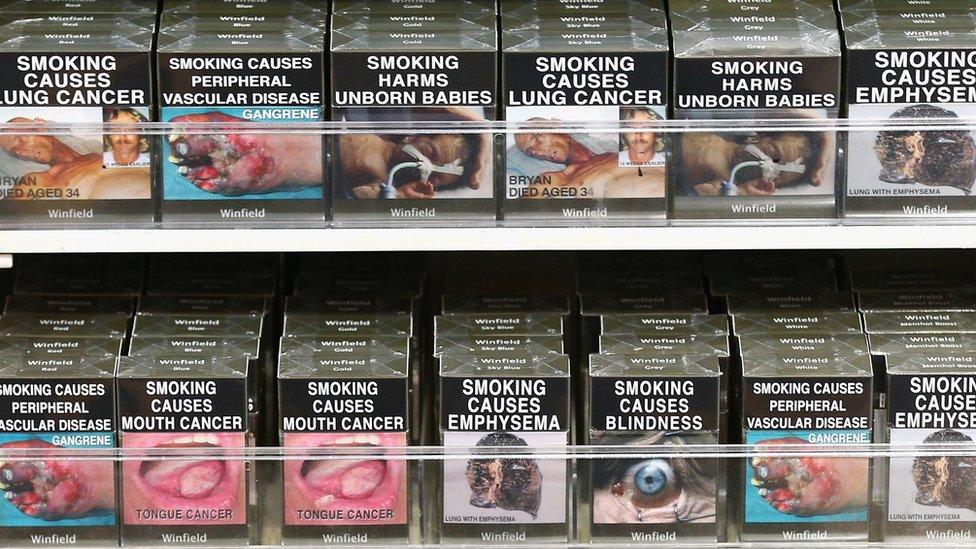WTO backs Australia over plain cigarette packets
- Published

Australia was the first country to introduce mandatory plain packaging for tobacco products
Australia has won a major trade dispute over its pioneering plain packaging for cigarettes, in a decision handed down by the World Trade Organization (WTO).
Australia made it mandatory in 2011 for cigarettes to be sold in drab-looking packets that carry health warnings.
Seven years on, the WTO has rejected complaints from four nations that the laws violate international trade.
Unless there is a successful appeal, the decision is expected to hasten similar regulations around the world.
"Australia has achieved a resounding victory," its government said in a statement on Friday.
Cuba, Honduras, Dominican Republic and Indonesia - all tobacco producers - had argued that plain packaging infringed on trademarks and intellectual property rights.
But the WTO rejected those arguments and assertions that alternative measures could achieve an equivalent benefit to public health.
Test case
The World Health Organization (WHO) praised the ruling, and said it would most likely "accelerate" the roll-out of similar packaging in other countries.
Six nations - Britain, Ireland, France, Hungary, Norway and New Zealand - have already followed Australia in introducing legislation since 2011.
Under the new law, brand names will appear in the same position, font, size and colour on packets
Plain packaging laws are also scheduled to take effect in Burkina Faso, Canada, Georgia, Romania, Slovenia and Thailand, the WHO said.
The decision could also pave the way for tighter marketing restrictions on junk food and alcohol.
Honduras has indicated that it is likely to appeal the WTO decision.
"It appears that this dispute will require the review of the Panel's findings by the WTO Appellate Body before any final conclusions can be drawn," it said, according to news agency Reuters.
Australia said it was ready to contest an appeal.
"We will not shy away from the right to protect the health of Australians," Trade Minister Steven Ciobo and Rural Health Minister Bridget McKenzie said in a statement.